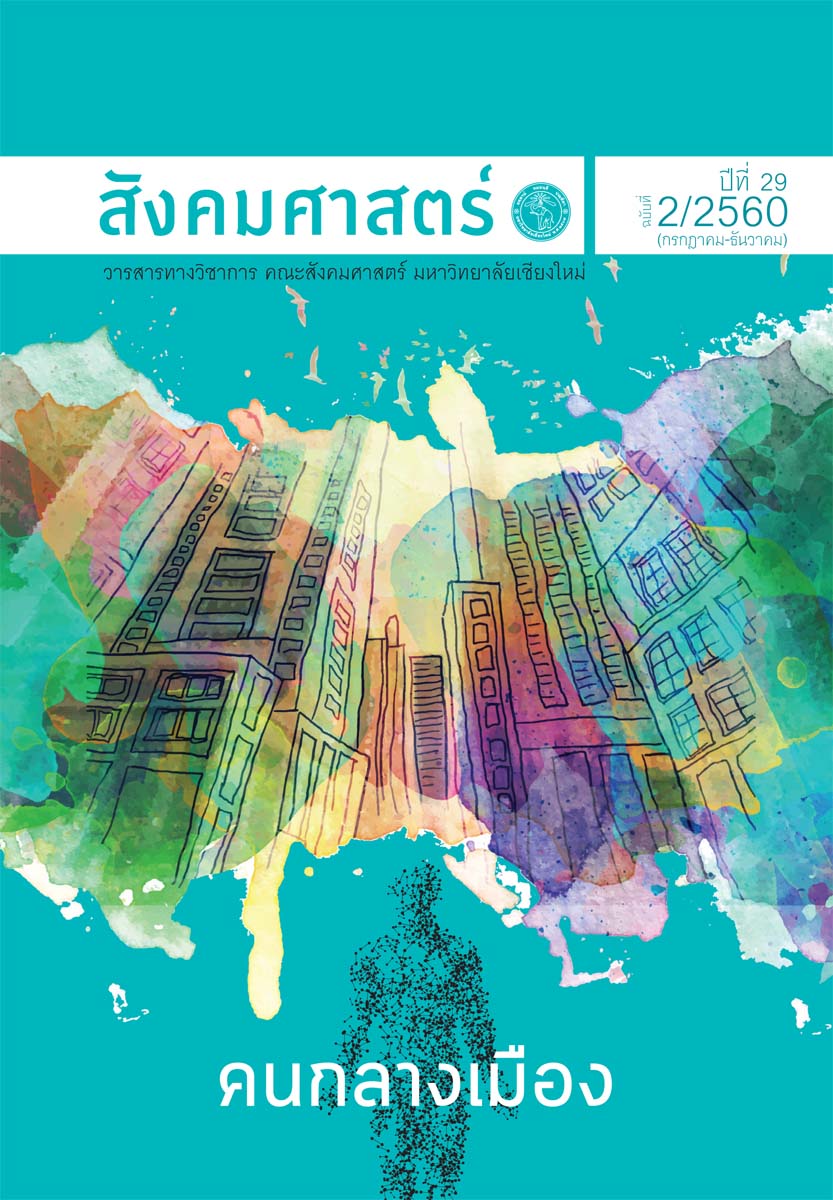Exploring Chiang Mai through gentrification lens: drawing linkage between tourism and social class changes of residents in the old city
Main Article Content
Abstract
After discussion about the concept of gentrification and tourism gentrification, this article holds the objectives to (1) explore the extent of the tourist space in forms of accommodations in the past decade focusing on the area of the historic city of Chiang Mai, (2) analyze the situation under the conceptual framework of gentrification, (3) discuss some possible institutional and socioeconomic driving forces of gentrification in this case, and (4) discuss further research recommendations. By means of spatial analysis and qualitative analysis, findings and analysis show the existing rapid speed of social class replacement in the old city in the form of hotels and guesthouses and very mild impact from youth hostels and Airbnb properties. Future projections based on the recent Building Codes and value gap analysis shades a probable continuation of large sized hotels penetration in the area, which would affect number of existing affordable shared accommodation of which new construction has become prohibited. However, it is found that many of current landowners are not keen on online informal accommodation platform and some communities yield land attachment that resist gentrification.
Article Details
All written articles published on Journal of Social Sciences is its author’s opinion which is not belonged to Faculty of Social Sciences, Chiang Mai University or is not in a responsibility of the journal’s editorial committee’s members.


